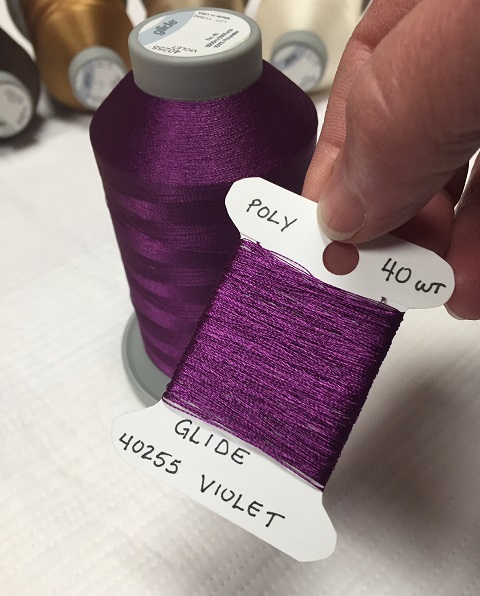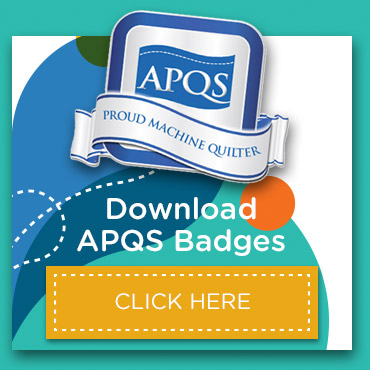Owning a quilting business – what thread colors should you have?
What thread colors should I have? What kind of a question is that to ask a quilter? Of course we want one of every color! But for most of us either our space is limited or our pockets are not deep enough to indulge in hundreds of thread cones.
The good news is that while you might want hundreds of thread colors, you don’t need them to successfully start a longarm business! You can start off with a small investment in just over two dozen colors that will see you through many different quilt styles and genres as your business grows.

That also applies even if a longarm business is not your goal. We’ve helped with that process by bundling thread starter packs on our APQS Online Store.
For the most versatility, choose a thread in the 40-50 weight range as your mainstay thread. Threads in this thinner range blend better even when they are not an exact match. They can take on the tones, shades and tints of the fabric much like a chameleon. For example, sage green thread can look like dark taupe, tan, mint green, and even teal.
Start with a good variety of neutral colors including black, dark grey, light grey, brown, tan, taupe, ecru and white. These core colors will work fabulously across multiple fabrics when doing overall designs. Next add the primary colors of red, yellow and blue to your palette, along with a light tint and dark shade of the same color. Choose a light pink, a cherry red, and a burgundy color. Add pale yellow, sunshine yellow, and gold. Fill in with light blue, royal blue, and navy.

Next add the secondary colors of orange, green and purple, along with light tints and dark shades of each of them. This will fill out your basic thread color wheel, giving you the choices you need to successfully quilt many different quilts. You can always add to your collection as the need arises—even one spool at a time. Once you find a brand that you like, purchase thread charts that have actual thread samples instead of color photos so that you can wisely select colors to build your stash.
However, before you dash off to the quilt store or thread website, take the time to audition your current thread on the quilt by draping 3-4 yards across the fabric. Thread color is much more intense when you see it on the cone than it is as a single strand. You’ll often be pleasantly surprised by how well a thread blends when you originally thought it was too dark or the wrong shade once you see it as a single thread line on the quilt.
As your thread collection grows, you’ll also need a quick way to catalog what you have as well as to show customers samples. Here’s a trick I’ve used for years that has saved me many trips up and down the stairs to my studio during a client consultation. Every time you purchase a cone of thread, wrap several yards around a standard embroidery floss card found in sewing and craft stores. I’ve even been known to speed up the wrapping process by placing the cone on my APQS longarm with the thread through the first thread guide, then sticking the floss card in the chuck of a cordless drill and running it at low speed. JWrite the thread details on the card including color number, thread type, weight, and manufacturer.

Then when it’s time to audition thread choices on a quilt, pull out your “thread palette” and spread it across the quilt. Simply unwrap the thread sample from the card and puddle it across the quilt to help make your decision, and may introduce a thread color you hadn’t originally considered but is just perfect for the quilt!
To learn more about the impact of thread color, thickness and type on your quilting, check out this Quilting the Quilt Article on the APQS Blog.



